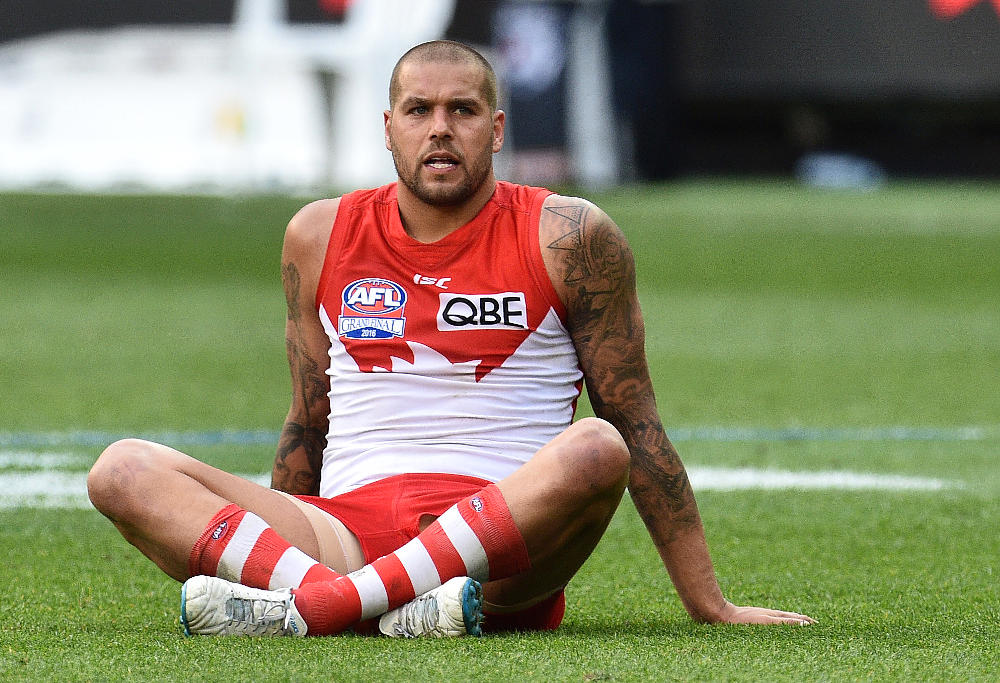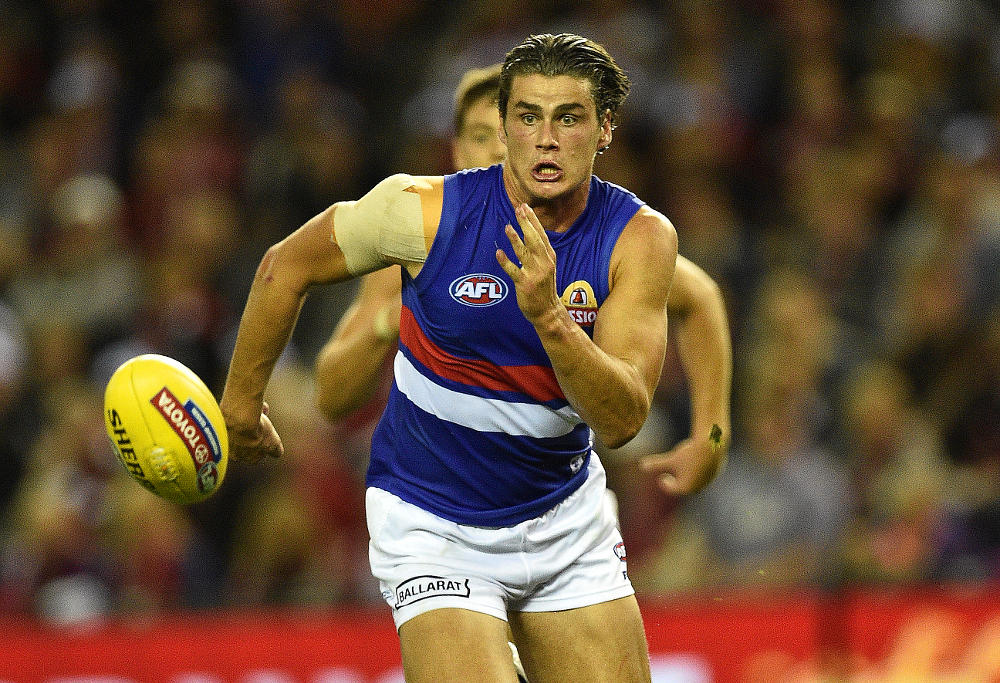I’d take a punch to the head from Tom Bugg or Ali Fahour any day before ever having depression again. In 47 years of life I’m yet to have experienced anything worse.
In the wake of Tom Boyd taking indefinite leave from the game, the AFL might need to have a good look at the demands on current players.
Perhaps it is only a microcosm of society, though the best-case scenario is that players feel more comfortable divulging the uncomfortable truth.
Either way, Boyd’s tale is becoming all too familiar and it’s an area where the AFL can genuinely help society. Their example is being set by employees like Boyd.
I played football, accompanied by an undiagnosed bipolar disorder until I was thirty. My last game was a premiership victory.
After the final siren I started bawling my eyes out. Almost immediately I realised that I wasn’t blubbering because we’d won, but because I knew that winning had changed nothing.
On a day meant for joy and celebration I only discovered how sad and sick I was. Worse, in that tragic, false-masculine manner I tried to fight it, so remained untreated for a further decade.
Depression is a disease of the soul as much as it is an illness of the brain. It doesn’t discriminate. If you’ve got it, you’ve got it.
No matter what you may think of Garry Lyon and James Hird’s life choices, or Buddy Franklin, Alex Fasolo, Travis Cloke or Tom Boyd as people or footballers, they have all either lived, or are living through a hell you wouldn’t want to live through.

(AAP Image/Julian Smith)
For those that are fighting it, depression can remove the will to live. Suicide statistics present compelling evidence that depression is winning the fight more frequently than it once did.
Anyway, depression is not a ‘fight’, and although a convenient analogy, nor should we describe it as one. Often what is meant by fighting, is suffering in silence.
Football is a fight. Depression is an illness that requires understanding and treatment. You can fight an opponent on your own, but not depression.
Like days past when the actions of Bugg and Fahour might have been celebrated, also gone are the days of advising those who are struggling to ‘toughen up’. That will save lives.
The recent actions of Fasolo, Cloke and now Boyd are commendably instructive – don’t ‘fight’ it, get help.
The thoughtless, dumb gags recently made by some media pundits don’t hurt me, but they might hurt someone who is young and suffering from an irrational, debilitating illness, or a confusion so catastrophic that it has infected every part of their soul with an incredible vulnerability.
Winston Churchill called depression ‘The Black Dog’, which is being rather unkind to black dogs.
I had a white dog, a pit-bull named Dudley. Not only was he handy for my anxiety, but his love kept me from suicide. Dudley died recently and for the first time in my life I experienced an authentic, natural sadness.
The type we are meant to feel. It was a beautiful sadness. Depression is anything but.
Prominent footballers are both lucky and unlucky.
Lucky in that they can get immediate access to the best help, something underprivileged, disadvantaged or poor people can’t.
They are unlucky in that they are ridiculously scrutinised and placed under enormous pressure by anyone with an interest in sport. Why? Simply for playing a game that is meant to be fun, a game which beyond the superficial, doesn’t really matter.
Because of courageous men like Franklin, Fasolo, Cloke and Boyd less people will get to the tortured point I and many others have.

(AAP Image/Julian Smith)
Fewer people will abuse drugs or alcohol as a coping mechanism, fewer will retire from football because of a treatable illness and hopefully fewer again will retire from life itself.
Intentionally or otherwise – through the public acknowledgement of a still misunderstood illness – these footballers will ultimately do something far more beneficial for society than anything they could ever hope to achieve on a footy field.
Why? Because depression is life and death, footy isn’t.
Good on Tom Boyd, and if he hasn’t got one already, he might want to get himself a white dog.
If you or anyone you know needs help, you can call Lifeline on 13 11 14 or Beyond Blue on 1300 22 46 36.































































































